Unveiling the Power of Essential Oils for Hair Growth: Dive into 6 Oils to Transform Your Hair Health!
For many Indians, long, strong and lustrous hair is not just a beauty ideal, it's a deeply cherished
part of their heritage and self-expression. From ancient Ayurvedic practices to modern-day hair care routines, the pursuit of healthy hair is a constant.
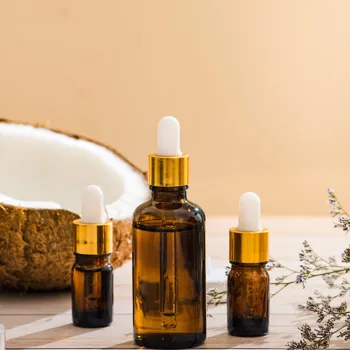
While there are countless products promising miraculous results, many are now turning back to nature, exploring the power of essential oils for hair growth.
These potent plant extracts have been used for centuries for their therapeutic properties, and when applied correctly, offer a natural and effective way to boost hair health and promote growth.
In this article, we'll explore six of the best essential oils for hair growth and how you can incorporate them into your hair care regime.
Essential oils pack a powerful punch when it comes to hair care.
They contain concentrated plant compounds that can stimulate hair follicles, improve circulation to the scalp, strengthen hair strands, and even combat dandruff and other scalp issues that can hinder growth. Think of them as tiny powerhouses that nourish your hair from root to tip.
Now, it's important to remember that essential oils are very concentrated, so they should always be diluted with a carrier oil before being applied to the scalp. Common carrier oils include coconut oil, almond oil, jojoba oil, and grapeseed oil.
The right carrier oil can further enhance the benefits, providing additional nourishment and moisturization. We will see how to use the essential oils.
Rosemary Oil: The Follicle Booster
Rosemary oil is perhaps the most celebrated essential oil for hair growth, and for good reason. Studies have shown that it can be as effective as minoxidil, a common hair growth medication, in stimulating hair growth.
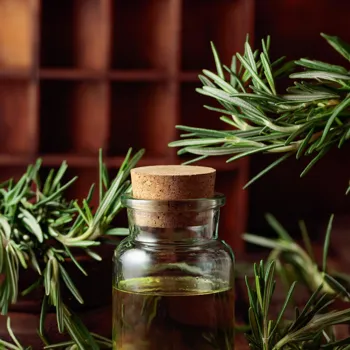
Rosemary oil works by improving blood circulation to the scalp, which nourishes hair follicles and encourages hair growth.
It also has antioxidant and anti-inflammatory properties that can help protect the scalp from damage and reduce inflammation, creating a healthier environment for hair to thrive. It's a good choice for those experiencing thinning hair or hair loss.
To use rosemary oil, mix a few drops with a carrier oil like coconut or almond oil. Massage it gently onto your scalp for about 5-10 minutes, focusing on areas where you're experiencing hair loss or thinning.
Leave it on for at least 30 minutes, or even overnight, before washing it out with a mild shampoo. You can do this 2-3 times a week for best results. Some people also add a few drops of rosemary oil to their shampoo or conditioner for an added boost.
Remember to do a patch test before using rosemary oil on your entire scalp to ensure you're not allergic. A patch test is like a quick check to see if your skin likes the oil.
Apply a small amount of the diluted oil to a small area of your skin, like behind your ear, and wait 24 hours to see if you have any reaction. If not, you're good to go!
Lavender Oil: The Soothing Scalp Savior
Lavender oil is well-known for its calming and relaxing properties, but it's also beneficial for hair health. It has antimicrobial properties that can help to keep your scalp clean and healthy, preventing dandruff and other scalp infections that can impede hair growth.
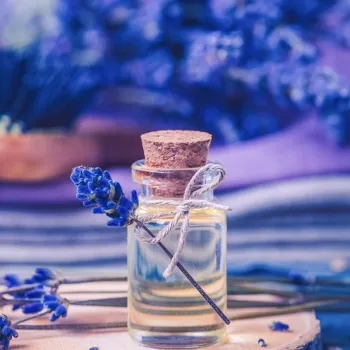
Lavender oil also promotes relaxation, which can indirectly benefit hair growth by reducing stress levels. Stress can contribute to hair loss, so incorporating lavender oil into your routine can help to manage stress and support healthy hair growth.
Plus, its lovely fragrance makes it a pleasant addition to your hair care regime.
Using lavender oil is similar to using rosemary oil. Mix a few drops with a carrier oil and massage it into your scalp. You can also add a few drops to your shampoo or conditioner.
Another relaxing way to use lavender oil is to add a few drops to a diffuser while you're getting ready in the morning. This can help to create a calm and peaceful atmosphere, setting you up for a stress-free day.
For a more intensive treatment, you can make a lavender-infused hair mask by mixing lavender oil with yogurt and honey. Apply the mask to your hair and scalp, leave it on for 30 minutes, and then rinse it out.
Remember consistency is key when it comes to seeing results with essential oils, so make lavender, your hair buddy.
Peppermint Oil: The Tingle-Inducing Stimulator
Peppermint oil is known for its invigorating and stimulating properties. When applied to the scalp, it creates a tingling sensation that increases blood flow to the area, which helps to nourish hair follicles and promote hair growth.
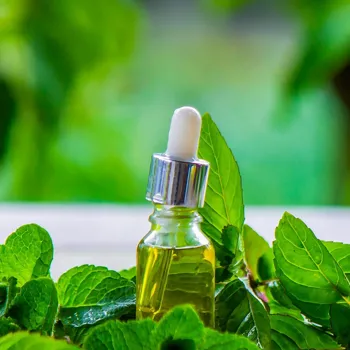
Peppermint oil can also help to awaken dormant hair follicles, encouraging them to start producing hair again! One study found that peppermint oil was more effective than minoxidil in promoting hair growth in mice.
While more research is needed on humans, these results suggest that peppermint oil has significant hair growth potential. Peppermint oil makes your scalp feel like it's getting a wake-up call.
Because peppermint oil is very potent, it's important to dilute it properly.
Start with just a few drops mixed with a carrier oil like grapeseed oil. Apply it to your scalp and massage gently; you should feel a tingling sensation. If the tingling becomes too intense, add more carrier oil to dilute it further. Leave it on for about 15-20 minutes before washing it out.
You can also add a few drops of peppermint oil to a spray bottle filled with water and use it as a scalp refreshing spritz throughout the day. This can help to keep your scalp stimulated and promote circulation.
Peppermint oil also has a refreshing scent that can help to awaken your senses and boost your mood. Be careful, not to get it in your eyes.
Cedarwood Oil: The Balancing Act for Scalp Oil
Cedarwood oil has antiseptic and anti-inflammatory properties that can help to treat scalp conditions like dandruff and eczema, which can contribute to hair loss. It also helps to balance the oil production in the scalp, making it beneficial for both oily and dry scalps.
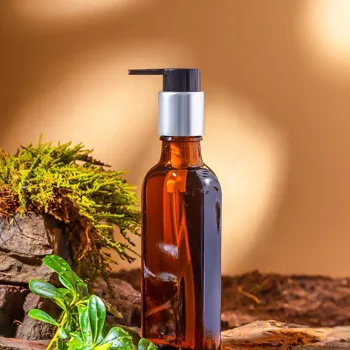
By regulating oil production, cedarwood oil creates a healthier environment for hair to grow. Moreover, some studies have suggested that cedarwood oil can help to reduce hair loss associated with alopecia areata, an autoimmune disorder that causes patchy hair loss.
It's worth a try, especially if you are dealing with this condition.
To use cedarwood oil, mix a few drops with a carrier oil like jojoba oil, which is similar to the scalp's natural sebum. Gently massage it into your scalp before bed and leave it on overnight.
Wash it out in the morning with a mild shampoo. You can also add a few drops to your shampoo or conditioner. Another way to use cedarwood oil is to create a hair mask by mixing it with honey and coconut oil. Apply the mask to your hair and scalp, leave it on for 30 minutes, and then rinse it out.
Cedarwood oil has a woodsy and earthy scent that is grounding and calming. People generally find it quite therapeutic.
Tea Tree Oil: The Scalp Cleanser Extraordinaire
Tea tree oil is renowned for its potent antiseptic, antifungal, and antibacterial properties. It's a powerful cleanser that can help to remove buildup from the scalp, unclog hair follicles, and prevent dandruff.
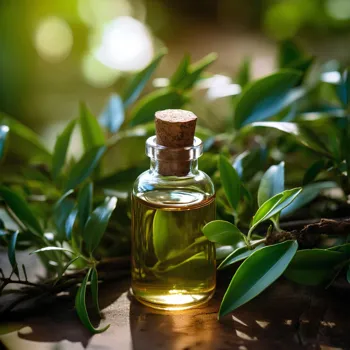
A clean and healthy scalp is essential for hair growth, and tea tree oil can help to create that ideal environment. It also helps to treat scalp infections that can hinder hair growth.
Tea tree oil is particularly beneficial for those with oily scalps, as it helps to control excess sebum production. It's like a deep cleaning for your scalp, leaving and giving it refreshed and revitalized.
Like other essential oils, tea tree oil should be diluted before use.
Mix a few drops with a carrier oil like almond oil and massage it into your scalp. Leave it on for about 30 minutes before washing it out. You can also add a few drops to your shampoo or conditioner. When choosing tea tree shampoo, look for natural and organic products, without chemicals.
Alternatively, add tea tree oil to any shampoo or conditioner you already have at home. If you have a severe scalp condition like dandruff, you can use tea tree oil more frequently, such as every other day. However, if you have sensitive skin, start with a lower concentration to avoid irritation.
Thyme Oil: The Circulation Champion for Hair
Thyme oil is a potent essential oil for hair growth that works by stimulating blood flow to the scalp. Increased circulation ensures that hair follicles receive the nutrients they need to thrive, promoting hair growth and strength.
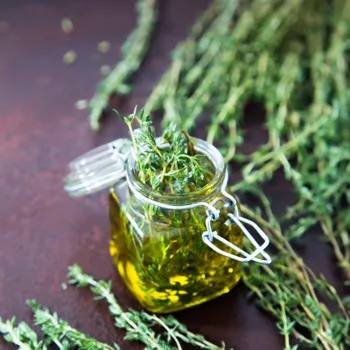
Thyme oil is also known to have antiseptic properties that help keep the scalp clean. This oil is particularly helpful in addressing both dormant hair follicles and hair fall and loss. Incorporating this oil into your routine can promote hair growth, in general.
Because it's so potent, thyme oil should be used with caution. Dilute it thoroughly with a carrier oil like coconut oil. Start with just one or two drops mixed with a tablespoon of carrier oil.
Massage it into your scalp for a few minutes and leave it on for about 10-15 minutes before washing it out. Only use thyme oil once or twice a week. To test it out, apply a small amount of the mix to your scalp and wait around 24 hours. If you don't notice any redness, itching.
or irritation, you can use it sparingly as directed. This helps to prevent any adverse reactions. As with any new treatment, patience and compliance can enhance benefits.



















